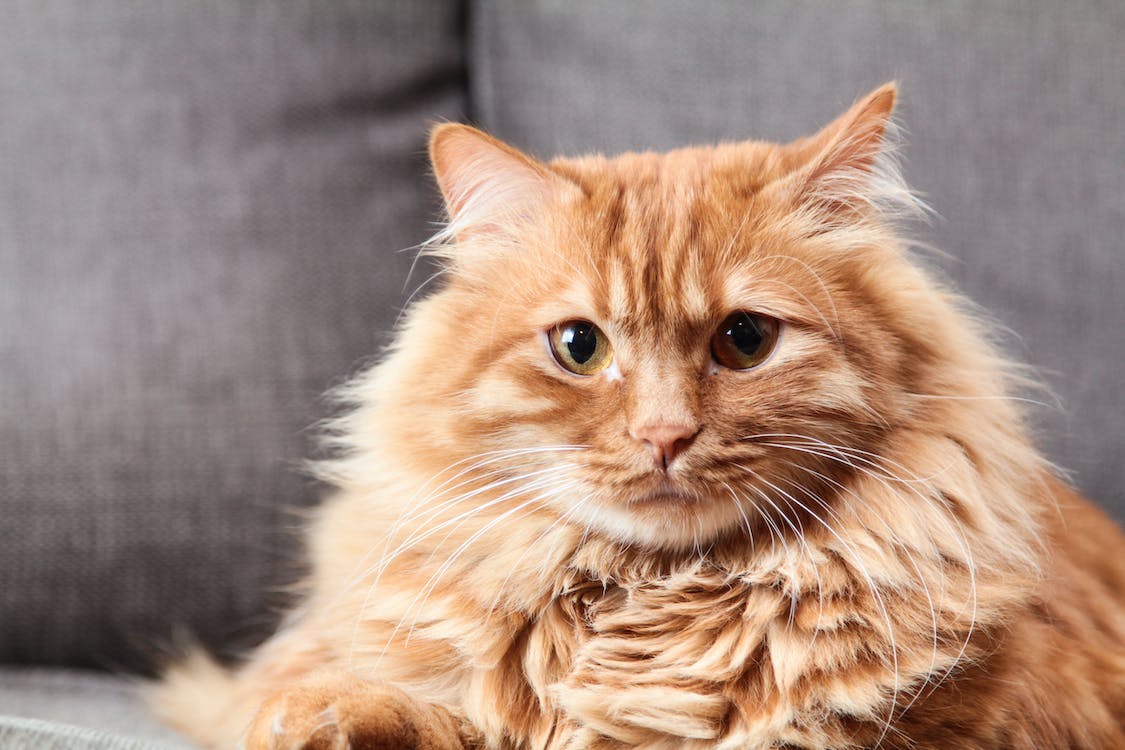Understanding Feline Arthritis: Causes, Symptoms, and Treatment Options
18th Dec 2024
Your cat’s graceful leaps and playful pounces may slow down over time, but if they’re accompanied by stiffness or reluctance, arthritis could be the reason.
Just like us, cats can develop arthritis, causing discomfort that interferes with their favourite activities. Arthritis, or osteoarthritis, occurs when the cartilage that cushions the joints wears down, leading to painful bone-on-bone contact. While this condition is more common in senior cats, younger cats can also be affected due to injury, genetics, or other factors.
By spotting the signs early and providing the right care, you can keep your feline friend comfortable and active. Let’s take a closer look at the common signs of arthritis in cats, potential causes, and the best ways to manage this condition.

Signs of Arthritis in Cats
Cats are experts at hiding pain, making it tricky to spot health issues. However, their subtle behaviours can reveal a lot. Here are cat arthritis symptoms to watch for:
Hesitation to Jump or Climb
Notice your cat opting for lower surfaces or avoiding their usual favourite spots? Arthritis often makes jumping painful, so they may look for alternatives.
Stiffness or Limping
Cats with arthritis might limp or appear stiff, especially after resting or sleeping. Pay attention to how they move after a nap.
Changes in Grooming Habits
A dull coat or matted fur, particularly around hard-to-reach areas like their back and tail, is one of the telltale signs of arthritis in cats. Your feline friends might struggle to groom themselves properly due to the discomfort. Alternatively, they might overgroom painful joints.
Difficulty Using the Litter Box
Climbing in and out of high-sided litter boxes can become a challenge for cats facing arthritis. They may avoid using them, leading to accidents outside the box.
Behavioural Shifts
Another cat arthritis symptom is a change in mood and energy levels. Cats experiencing pain might become irritable, hide more often, or show less interest in playing or interacting.
What Causes Arthritis in Cats?
Understanding what’s behind your cat’s discomfort can help you manage their arthritis better. Common causes include:
1. Age: As cats age, their joints naturally experience wear and tear. This can lead to cartilage breakdown and painful bone-on-bone contact.
2. Injury: Past injuries, such as fractures or sprains, increase the risk of arthritis later in life.
3. Genetics: Some breeds, like Maine Coons and Scottish Folds, are genetically predisposed to joint issues due to abnormalities in cartilage or bone development.
4. Obesity: While obesity doesn’t directly cause arthritis, excess weight can put extra strain on joints, worsening your cat’s arthritis symptoms.
5. Joint Abnormalities: Conditions like hip dysplasia can also lead to arthritis over time.
Treatment Options for Cats with Arthritis
While there’s no cure for arthritis, several treatments alleviate pain and improve your furry friend’s mobility.
Joint Supplements
Supplements like glucosamine and chondroitin support joint health by improving cartilage structure and reducing inflammation. Explore our cat joint supplements for tailored solutions.

Pain Relief Medications
Your vet may prescribe non-steroidal anti-inflammatory drugs (NSAIDs) or other pain relievers to manage discomfort. Always follow their guidance to ensure safe usage.
Home Adjustments
Make your home arthritis-friendly with these simple changes:
- Use ramps to help your cat reach favourite spots like couches or window sills.
- Provide soft, warm bedding to cushion sore joints.
- Switch to a low-sided litter box for easier access.
Specialised Diets
A diet rich in omega-3 fatty acids can reduce inflammation. Pair this with quality cat vitamins to support overall health.
Alternative Therapies
Treatments like injectable joint protectants, acupuncture, or hydrotherapy may provide additional relief. Discuss these options with your vet to see if they’re suitable for your cat.
Caring for Cats with Arthritis & Prevent Progression
Though arthritis isn’t always preventable, early intervention at the first sign of arthritis in cats can slow its progression and keep them more comfortable.
Start with keeping the essentials accessible. Place food, water, and the litter box in easily reachable locations to minimise strain. Next, support their daily routine with plenty of comfortable resting areas and plush bedding in their go-to spots. You can also use a gentle brush to maintain their coat, especially if they struggle to reach certain areas.
For minor injuries or irritation, products like cream for cat wounds can ensure your cat stays comfortable and prevent further complications.
Keep Your Cat Moving Comfortably
Arthritis doesn’t have to slow your cat down completely. With the right combination of treatments and home adjustments, you can ensure they continue to enjoy their favourite activities with less pain.
Shop our selection of joint supplements and other health products to support your feline friend’s mobility and comfort. Because every jump, stretch, and nap should be a happy one.

